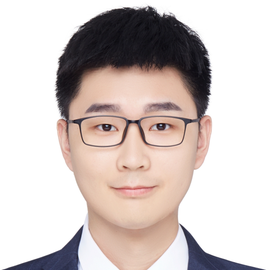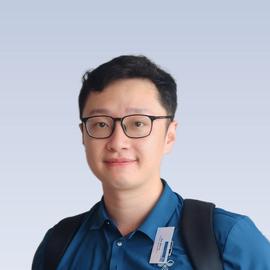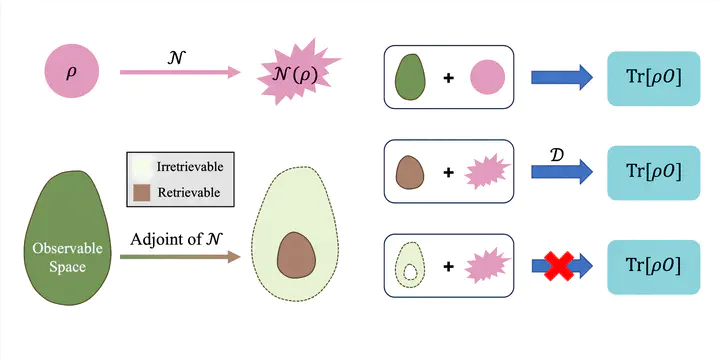Abstract
Extracting classical information from quantum systems is an essential step of many quantum algorithms. However, this information could be corrupted as the systems are prone to quantum noises, and its distortion under quantum dynamics has not been adequately investigated. In this work, we introduce a systematic framework to study how well we can retrieve information from noisy quantum states. Given a noisy quantum channel, we fully characterize the range of recoverable classical information. This condition allows a natural measure quantifying the information recoverability of a channel. Moreover, we resolve the minimum information retrieving cost, which, along with the corresponding optimal protocol, is efficiently computable by semidefinite programming. As applications, we establish the limits on the information retrieving cost for practical quantum noises and employ the corresponding protocols to mitigate errors in ground state energy estimation. Our work gives the first full characterization of information recoverability of noisy quantum states from the recoverable range to the recovering cost, revealing the ultimate limit of probabilistic error cancellation.

Visiting Scholar
I obtained my MS degree in Physics from Imperial College London. I was an intern at Baidu Research under the supervision of Prof. Xin Wang. I obtained my PhD degree in quantum information at Osaka University. My research interests include quantum error mitigation, quantum information theory and quantum computation.

Associate Professor
Prof. Xin Wang founded the QuAIR lab at HKUST(Guangzhou) in June 2023. His research primarily focuses on better understanding the limits of information processing with quantum systems and the power of quantum artificial intelligence. Prior to establishing the QuAIR lab, Prof. Wang was a Staff Researcher at the Institute for Quantum Computing at Baidu Research, where he concentrated on quantum computing research and the development of the Baidu Quantum Platform. Notably, he spearheaded the development of Paddle Quantum, a Python library designed for quantum machine learning. From 2018 to 2019, Prof. Wang held the position of Hartree Postdoctoral Fellow at the Joint Center for Quantum Information and Computer Science (QuICS) at the University of Maryland, College Park. He earned his doctorate in quantum information from the University of Technology Sydney in 2018, under the guidance of Prof. Runyao Duan and Prof. Andreas Winter. In 2014, Prof. Wang obtained his B.S. in mathematics (with Wu Yuzhang Honor) from Sichuan University.
 Illustration of the main result on the information recoverability of noisy quantum states.
Illustration of the main result on the information recoverability of noisy quantum states.